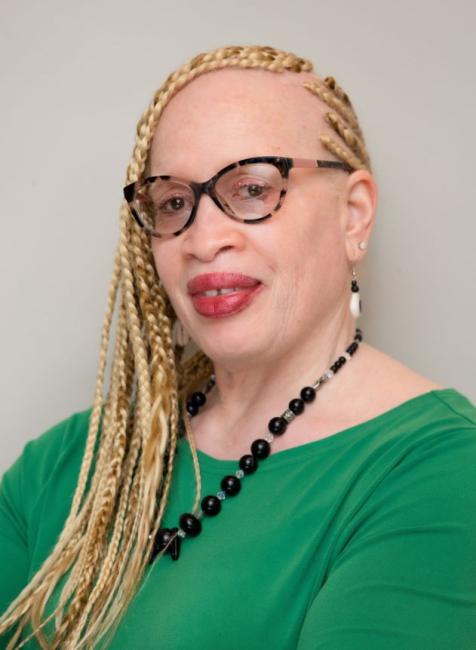
Patton Hall 302S
Dr. Adah Ward Randolph is Professor of Educational Research and Evaluation (EDRE) and specializes in qualitative methodology and the history of education. She received her Ph.D. from The Ohio State University in Educational Policy and Leadership with concentrations in African American and Women’s education history, urban education policy, race, class and gender studies, curriculum studies and qualitative methodology. Her research has focused on African American teachers and principals in urban communities. Dr. Randolph has published in many journals including Qualitative Inquiry, Urban Education, Educational Studies, Journal of School Leadership and History of Education Quarterly. Dr. Randolph is a member of many professional organizations and has served in many leadership roles including the Presidency of the History of Education Society.
Most Recent Publications:
Ward Randolph, A. (Forthcoming). “What Color Are You?” A Critical Autoethographical Treatise about Race and Color. In Ronald E. Hall & Neha Mishra (Eds). The Routledge International Handbook Of Colorism. Routledge.
Ward Randolph, A. (2023). Black Joy: Love, Intimacy and Sexuality Amongst Black Intellectuals in the Academy. Journal of Black Sexuality and Relationships.pp.273-299.
Alridge, D. P., Ward Randolph, A. & Johnson, A. (2023). African American Historians of Education and the Griot’s Craft: A Historiography. History of Education Quarterly.63, 3-31.
Ward Randolph, A. & James-Gallaway, A. D. (2022). Critical Race Theory and Education History: Constructing a Race-Centered History of School Desegregation. In Marvin Lynn, & Adrienne D. Dixson, (Eds.). Handbook of critical race theory in education, (2nd Ed). New York: Routledge. pp. 330-342.
Kgatlane, S., Velempini, K., Boikhutso, K. & Ward Randolph, A. (2022). Nexus of Khawa Dune Challenge and Cultural Festival and Local People’s Livelihoods in a Dryland Ecosystem of Botswana in Indigenous methodologies, research and practices for sustainable development. Marcellus F. Mbah, Walter Leal Filho, & Sandra Ajaps, Eds. Springer. 337-354.
Hasan, H. M. R., Noh, M., & Randolph, A. W. (2022). Diagnostic analysis of U.S. fashion brand’s Bangladeshi outsourcing, Journal of Global Scholars of Marketing Science, 32(2), 162-179, DOI: 10.1080/21639159.2020.1808829
Hasan-H, R., Noh, M. & Ward Randolph, A. (2021). Diagnostic analysis of U.S. fashion brand’s Bangladeshi outsourcing. Journal of Global Scholars in Marketing Science. 1-18.
Robinson, D. V., Robinson, & Ward Randolph, A. (2019). Lending a Hand to Support Successful Trajectories of Black Students. In Creating and sustaining effective-12 school partnerships: Firsthand accounts of promising practices. Information Age Publishing. 135-158,
Ward Randolph, A. & Robinson, D.V. (2018). Teaching and Leading as a Principled Act: How Ethel T. Overby Built Foot Soldiers of the Civil Rights Movement, 1910-1957.In Principled Resistance: How Teachers Solve Ethical Dilemmas. Doris A. Santoro & Lizabeth Cain, (Eds.). Harvard Education Press.
Velenpini, K., Martin, B., Smucker, T., Ward-Randolph, A., & Henning, J. (2017). Environmental education in Southern Africa: A case study of a secondary school in the Okavango Delta of Botswana Environmental Education Research.
Ward Randolph, A. & Robinson, D. V. (2017). De Facto Desegregation in the Urban North: Voices of African American Teachers and Principals on Employment, Students and Community in Columbus, Ohio: 1940 to 1980. Urban Education. 54, 10, 1403-1430, https://doi.org/10.1177/0042085917697204
Ward Randolph, A. (2014). African American Education History: A manifestation of Faith. History of Education Quarterly, 54, 1, 1-18.
Ward Randolph, A. (2012). It is better to light a candle than to curse the darkness: Ethel Thompson Overby and democratic schooling in Richmond, Virginia: 1910-1958. Educational Studies, 48(3), 220-243.
Ward Randolph, A., & Sanders, S. (2011). In search of excellence in education: The political, academic, and curricular leadership of Ethel T. Overby. Journal of School Leadership, 21(4), 521-547.
Ward Randolph, A. (2010). What does racism look like? An autoethnographical examination of the culture of racism in higher education. In Cynthia Cole Robinson & Pauline Clardy (Eds.), Tedious journeys: Autoethnography by women of color in academe (pp. 117-145). New York: Peter Lang.
Ward Randolph, A., & Weems, M.E. (2010). Speak truth and shame the devil: An ethnodrama in response to racism in the academy. Qualitative Inquiry, 16(5), 310-313.
Ward Randolph, A. (2009). The historical tradition of African American leadership in African American schools: 1830-1955. In L. Foster & L. Tillman (Eds.), African American perspectives in leadership in schools:Building a culture of empowerment (pp.17-37). New York: Rowman & Littlefield.
Ward Randolph, A. (2009). Dear Michelle: Redefining black motherhood. In B. Nevergold & P Bertram (Eds.), Go tell Michelle: African American women letters to the new first lady (pp.151-153). New York: SUNY Press.
Ward Randolph, A. (2008).To gain and to lose: The loving school and the African American struggle for education in Columbus, Ohio: 1871-1882 . In L. Tillman (Ed.), The handbook of African American education (pp.17-21). Thousand Oaks, CA: Sage Publications.
Ward Randolph, A. (2008). The memories of an all-black northern urban school: Good memories of leadership, teachers and curriculum. In B. S. Stern & M. L. Kysilka (Eds.), Contemporary readings in curriculum (pp.83-90). Thousand Oaks, CA: Sage Publications.
Ward Randolph, A. (2008). Thomas Jefferson Ferguson. In H. L. Gates, Jr., & E. Higginbotham (Eds.), African American national biography (pp.251-253). New York: Oxford University Press.
Ward Randolph, A. (2004). Memories of an all-black northern urban school: Good memories of leadership, teachers, and the curriculum. Urban Education, 39(6), 596-620.
Ward Randolph, A. (2004). Owning, controlling and building upon cultural capital: Thomas Jefferson Ferguson and Albany enterprise academy 1865-1886. In V. P. Franklin & C. Savage (Eds.), Cultural capital and Black education: African American communities and the funding of Black schooling, 1865 to the present (pp.15-33). Greenwich, CT: Information Age Publishing.